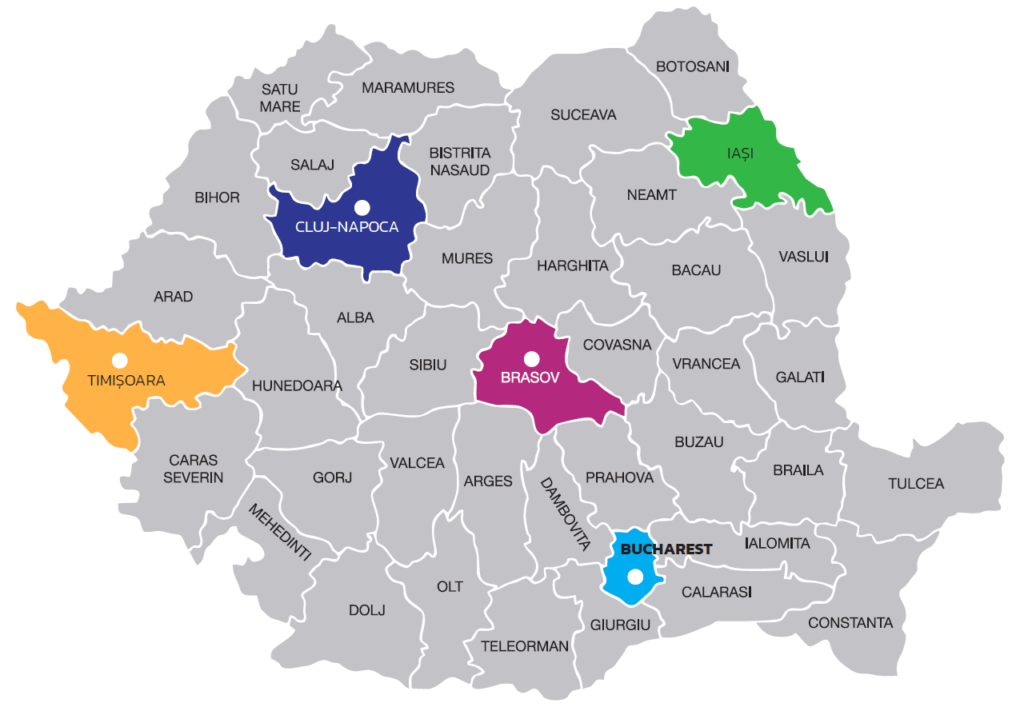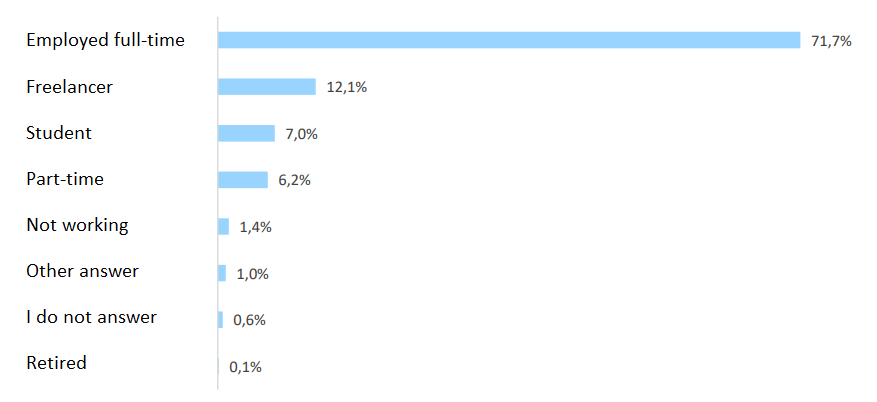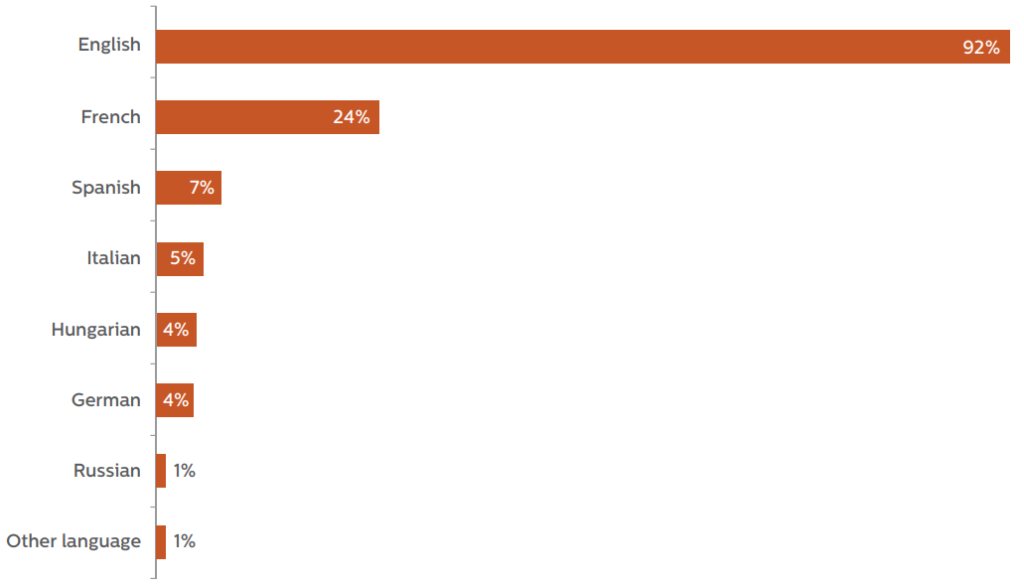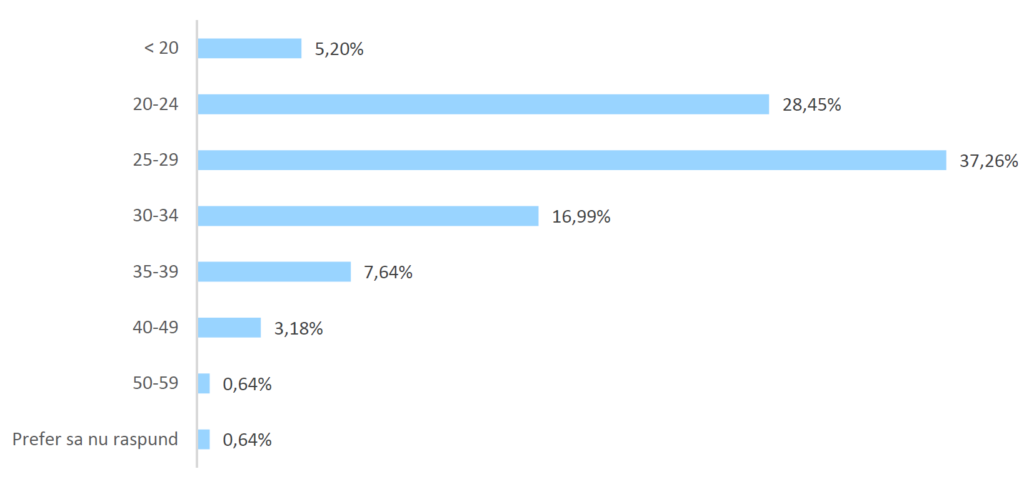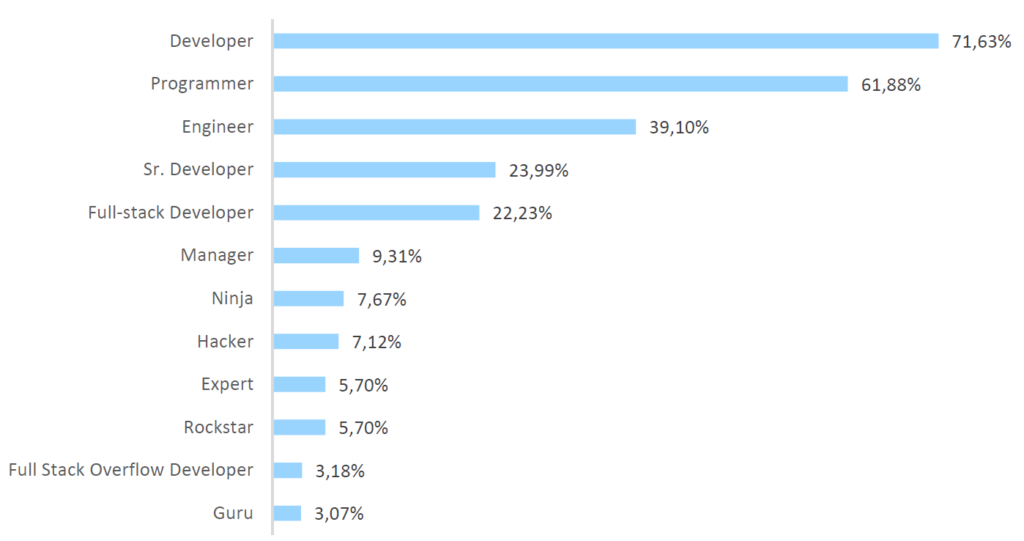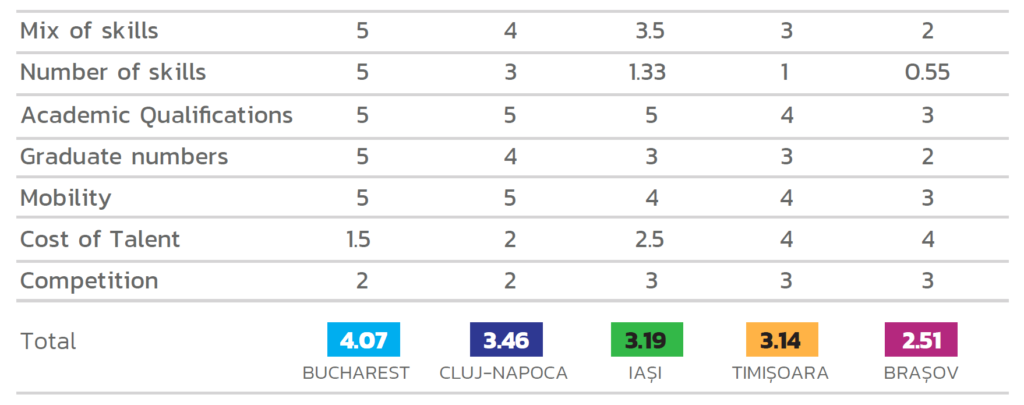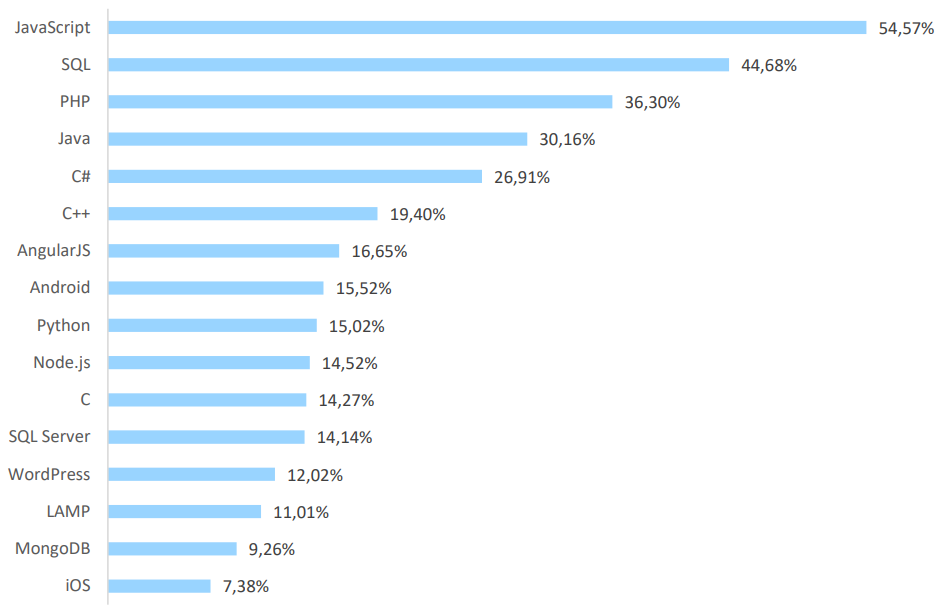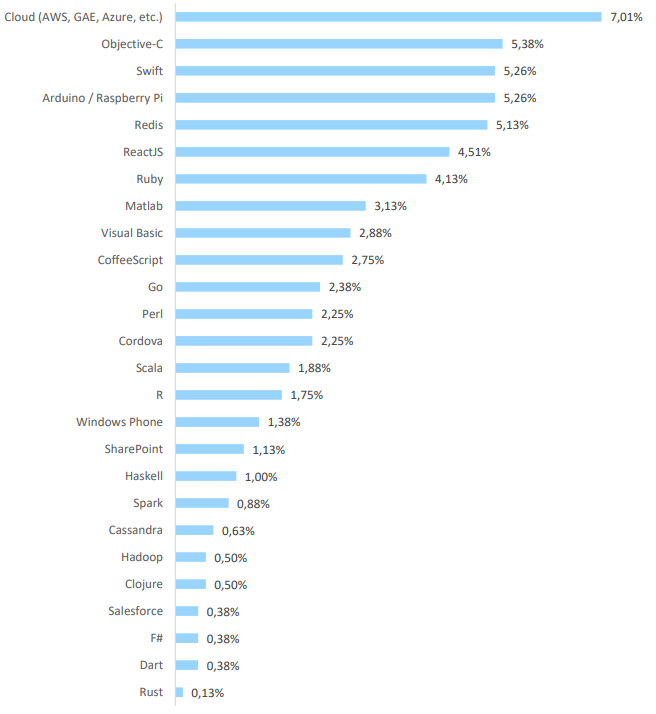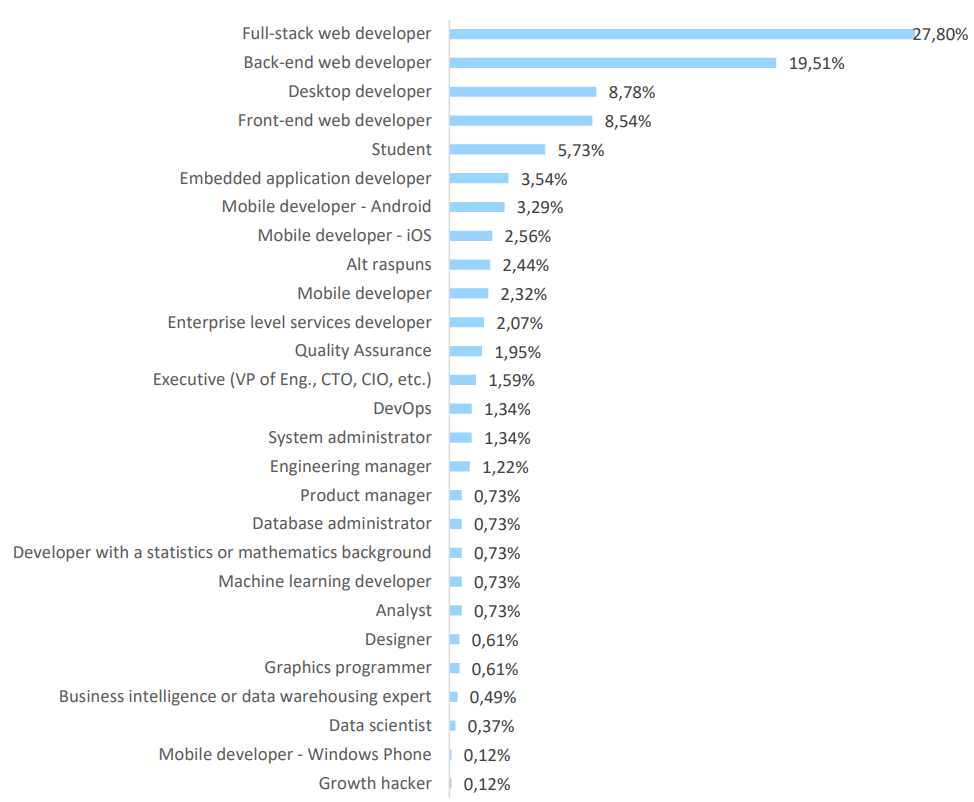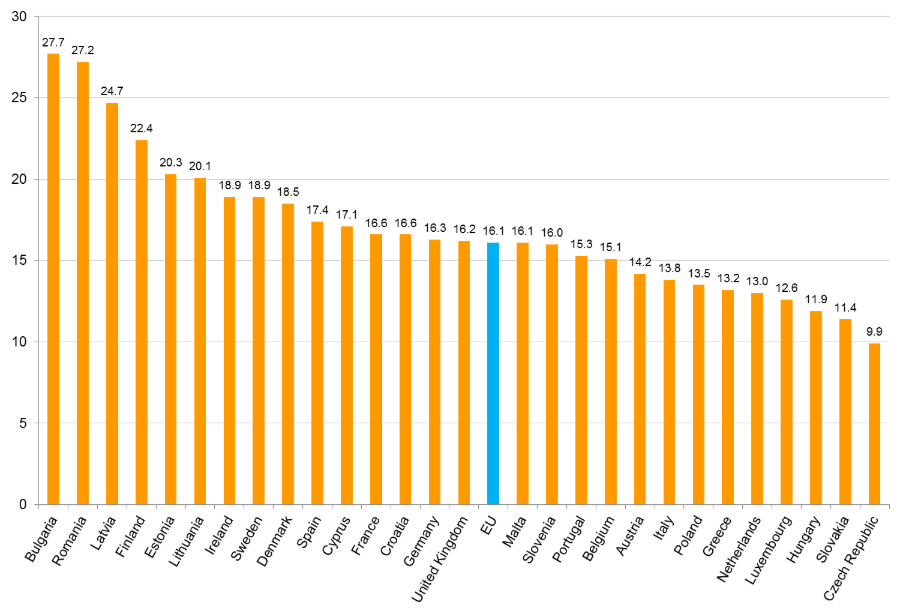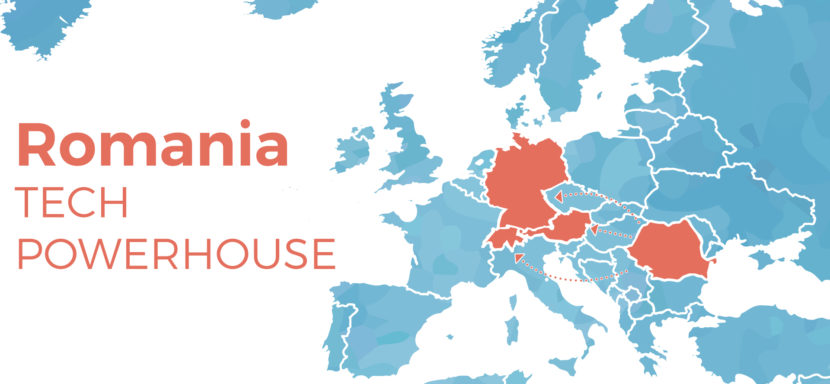The DACH region (and Western Europe in general) needs over 50,000 developers NOW.
The number of jobs for programmers increases each year by 5% in Germany alone and more than 40% of companies in the DACH region fail to find enough programmers.
What are the stakes? In the DACH region alone, more than EUR 50 billion is lost each year in GDP growth. Germany, Austria and Switzerland are looking for programmers Do you think time zone and price are the key criteria when deciding which outsourcing partner to choose?
Think about it. Take a look at 50 reasons that could bring other key decisive factors if you are thinking of working with Romanian programmers.
How long does it take for a country’s HISTORY to change educational or cultural elements?
# 1 Diversity
Historically, Romania is at the intersection of worlds: the Turkic populations of Anatolia, the Huns and later Hungary and Europe in the west, surrounded by the Slavic population at almost all borders.
Thus, the Romanians are at their origin a mixture of populations, including but not limited to the Thracians and the older Dacians, later the Bulgarians, The Pechenegs, the Avaras, the Tatars, the Vandals, as well as the Huns and Mongols, the Turks and many others. In Transylvania alone, there are currently 3 major ethnic groups living with the Romanian population: Saxons, Gypsies and Hungarians. This type of historically increased diversity in culture and population helps.
#2 Creativity
History has been harsh: always under the influence of the greater powers of the region or serving as their battlefield with few development options and in great need of creativity to escape death. Good programmers need a certain kind of creativity, to find solutions and work around them, to connect points in complex contexts; historically, this type of pressure helps to print psychology and attitudes towards the life of an entire region.
# 3 Pedigree in mathematics
World-renowned Romanian mathematicians such as Ştefan Odobleja, Gheorghe Țeiica, Spiru Haret, Grigore Moisil, Miron Nicolescu and Nicolae Popescu have built the foundations of the exact sciences in the country.
# 4 Labour culture
In Romania you will find a business culture similar to that of the rest of Western Europe and the USA, nor the culture in general us being so different. Moreover, the young crowd (the average age of a Romanian programmer is 27 years) listens to the same type of music, dresses from the same brands and is active on the same social networks.
# 5 Competitive nature
The Romanian school system is very competitive by itself.
After finishing primary school, most students participate in a competition for the best class in the school, usually around 5-10 students for a place in that class.
After finishing middle school, a national exam at Romanian level rates all students according to the results by county; according to this ranking they are allowed to opt for a high school, so there is a lot of competition to enter the best high schools ranked 1st or 2nd in the big cities. According to the same results, they can opt for a high school in another county (many with good grades in small towns decide to go to larger cities for high school).
The high school exam ranks future students even more and has an impact on their entry into top universities.
Throughout high school, students are encouraged to compete in local, national and international Olympics, with special courses held on weekends and long hours of learning in the evening.
# 6 Pragmatism
After the fall of dictator Ceaușescu, the economy was in decline.Choosing a job with good earning prospects was paramount.Learning speed is also important (you need 3 times more to start earning as much as you earn as much as you earn as an average programmer).
Moreover, a programmer needs a few e-books, e-books and a laptop, a doctor needs mountains of books, diaries, physical courses, must pass competitive exams, etc.
It’s better to be a well-paid programmer in a corporation than a school teacher who earns $300-400 a month at the beginning of his career.
Thus, in Romania there are more programmers per capita than in other countries, and the number of engineers per capita is higher than the USA, India, China or Russia.
Developers in Romania earn very well and this is a major incentive for young students in choosing to become a programmer.
When it comes to IT & PROGRAMMING, what are Romanians especially proud of?
# 7 Educational system
In the Romanian curriculum there is a strong bias towards mathematics and science in primary, secondary and high school.
In high school, the average Romanian student receives almost 8 times more computer training than an American.
With about 8,000 university graduates in technology/year, there are 5 top polytechnic universities, their teams being top 3 in the IEE design competition every year since 2001.
# 8 More medals in the computer science and mathematics Olympics than any other European nation
The Romanian Mathematics Team is among the best in the world (Top 10) and the first in Europe.
Romania currently ranks 3rd in the world after Russia and China in terms of international mathematics Olympics.
# 9 Internet speed With an average connection of 15 megabits per second, Romania is currently the 5th largest internet speed in the world and a few years ago was the fastest in the world.For example, the Internet speed is 5 times faster than the average connection of a U.S. user.This is a consequence of the 100% liberalisation of the Romanian Internet market after the fall of the communist regime.
# 9 Internet speed
With an average connection of 15 megabits per second, Romania is currently the 5th largest internet speed in the world and a few years ago was the fastest in the world.
For example, the Internet speed is 5 times faster than the average connection of a U.S. user. This is a consequence of the 100% liberalisation of the Romanian Internet market after the fall of the communist regime.
# 10 Geographical proximity to Western Europe
Very close by plane to Western Europe.Low-cost companies fly from all major Romanian cities in the capitals of Europe.
If necessary, moving teams to the customer’s premises on the first flight in the morning is not only possible, but also common practice.
#11 Time zone
With a difference of only 2 hours from London and 1 hour compared to the DACH region, Romanians work virtually at the same time as their colleagues in the West.
Compared to the USA, Romania and Eastern Europe in general, they are closer over time than Asia, where shifts are completely different at different times.
# 12 Nearshoring instead of Offshoring
When we talk about Romanian programming teams that help teams in Western Europe, due to time and geographical proximity, we are talking about nearshoring instead of offshoring.
The closer the region in which it is outsourced to the contractor’s region, the less frictions in terms of cultural and time difference or work ethic.
# 13 Romania has been part of the EU
Since 2007 Romania is a member of the European Union, which simplifies the legal and financial aspects.
#14 Infrastructure updates
Affordable labour and real estate costs make the country a first target for investment. Moreover, Romania has undergone major infrastructure improvements in recent years.
# 15 Romania is the fastest growing market in the EU in terms of outsourcing
With an annual growth rate of the outsourcing sector between 15 and 20%, Bulgaria and Romania are the fastest outsourcing markets in the EU in terms of IT outsourcing services.
The two countries are expected to hold leadership positions in Europe in the coming years and climb the global rankings.
# 16 Romanians from all over
It is estimated that in the last generation alone, about a third of Romanians migrated from their own country worldwide.
Therefore, there is a good chance that a Romanian language in the contracting language in the contractor’s country can manage communication and projects.
Most likely, that person will have IT experience: the easiest experience with which you can migrate is programming: No language barriers (everyone speaks English) International standards (you do not need to take the same exams to have recognized certifications as in the case of doctors, accountants, teachers, without language barriers like those for doctors, there is no different legal system as in the case of lawyers) What are the relevant recent developments in the IT market in Romania?
# 17 The total size of the large IT market
The total value of the Romanian software market in 2017 was over 4 billion euros and is expected to reach more than 6 billion euros in 2020.
# 18 Strong R&D in technology
Numerous research and development centers of multinational companies that are present in Romania have created the context for product development, even if the projects are generally commissioned by their headquarters.
These developments in the local market lead to more entrepreneurial initiatives.
# 19 Quick Access to Qualified Personnel
It is not extremely difficult to hire a team of software engineers. Good Romanian programmers usually know other good programmers with whom they can work well in a team.
# 20 The largest communities of programmers in Eastern Europe
With over 110,000 programmers in approximately 2018, Romania ranks 1st in Eastern Europe in terms of total, ahead of all other countries in the region, of which the largest are: Poland (100,000), Ukraine (90,000), Belarus (36,000), Bulgaria (25,000), Slovakia (20,000), Hungary (16,000)
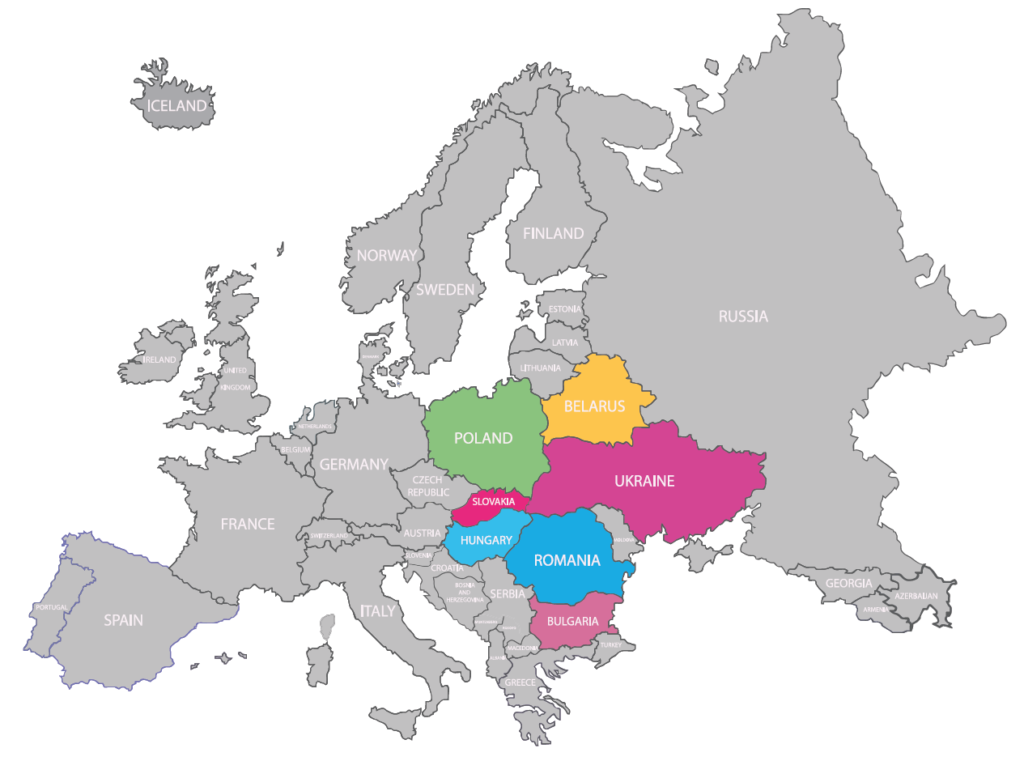
# 21 Public subsidies
The Romanian legal and fiscal administration also strives to trigger changes that support and encourage the local outsourcing market through various incentives, subsidies, government support at various levels, reduced taxes and other facilities.
# 22 Wages
Despite the upward trend, they are lower than in Western Europe. Romanian programmers are still very cost-effective compared to their western parts and often have more in-depth expertise due to the large volume and variety of projects they have to cover.
Un tabel cu salariile brute aproximative în euro pentru 2018:
# 23 Focus on programming hubs
And not spread across the country. The 4 big hubs are Bucharest, Cluj-Napoca, Iași and Timișoara, and Brașov will be approaching.
All major hubs have an airport from which low-cost flights depart to Europe’s major cities almost daily.
# 24 Entrepreneurship
In recent years, more money is available through investment funds and business angel networks of accelerators, incubators and hubs (local and international).There are also several incentives, support legislation and alternative financial instruments to finance new projects and ideas.
# 25 Romania is the first in Europe in terms of the number of certified IT specialists
Romania is the first in Europe in terms of the number of certified IT specialists, with a fund of over 110,000 people in different IT profiles.
# 26 Romania is ranked 6th in the world in terms of the number of certified IT specialists
Romania is the sixth internationally in terms of the number of certified IT specialists, with a fund of over 110,000 people in different IT-oriented profiles.g-today.ro/articol.php?id=6689
#27 A large percentage of the population works in technology
In 2017, about 110,000 programmers were working in technology, with the number expected to be well exceeded by 2020.As numbers per capita, see chart:
# 28 Stability in the technical workforce
In the case of outsourced programmers, many of them are freelancers.This brings some challenges, as freelancers often work on multiple projects at the same time, spreading their focus and not being as productive as when focusing on a single project.
However, most Romanian programmers are employed full-time.
# 29 Political and economic aspects of the country
In recent years, even in times of internal changes of the political landscape, both international relations with other countries and working relations with companies outside the borders are not affected. In general, the situation is fairly stable from both an economic and political perspective.
# 30 IT sector grows by 15% -20% annually
With an annual growth rate of the outsourcing sector between 15 and 20%, Romania is the fastest growing market in the European Union in terms of IT outsourcing services. Romania is also the third most attractive country for outsourcing software in the world.
# 31 Tax Incentives
As a measure to keep programmers in the country, the ministry has launched tax exemptions for freelancers and companies working in the IT sector. The Romanian government has successfully created and implemented a tax-exempt law for software development activities, a strong incentive to trigger and support the development of the IT sector, which has made Romania a real tax haven, especially for investors.
The higher the salaries and the lower the tax, the higher the interest rates for an IT career and Romania’s talent fund.
# 32 Value for money
Taken into account all, Romania is known for offering good value at a competitive price.
#33 Economic growth
The country’s growth was one of the highest in the EU in 2017 and is expected to continue at the same pace in 2018.In 2014, the IT&C sector exceeded the size of the agricultural sector, which is booming compared to all other economic sectors in Romania.
# 34 An outsourcing nation
It takes a certain type of experience and mentality to successfully communicate with different cultures and to successfully carry out projects.It’s not easy and the experience helps. Romania is one of the most attractive markets in Europe for investment in technology and outsourcing, with a highly skilled and diversified workforce, competitive prices and a stimulating business environment.
Its strategic position and high availability of resources make Romania a strong outsourcing partner, given the technical competence and software skills of employees.With over 50% of IT employees active in Outsourcing, Romania is becoming one of the most sought-after nearshore and offshore locations in the IT&C business.A feature of maturity has become visible in information technology and in areas of communication through the quality of outsourcing services offered.Therefore, in recent years, the ongoing nearshore and offshore collaborations have been very promising and sustainable.
Currently, the country has around 50 offshore centres owned by major international IT providers.More than half of these are BPO centres, 30% are IT service-related centres and less than 20% are research and development facilities. Bucharest, the capital with a population close to 2 million, was ranked 44th in Thelons Top Outsourcing Destinations.Dive into a market perspective of the IT RECRUTOR
# 35 Languages
92% (according to sources even 98%) Romanians working in programming speak fluent English. They’re either self-taught or they learned it while watching television, especially cartoons, both in childhood and in school.
French follows because it is taught in schools as a second language. Spanish and Italian are very easy to learn due to the similarity with the Romanian language.
Romania’s geographical position and Latin heritage facilitate professionals and graduates to develop and use language skills covering English, French, Italian, Spanish, German and Russian.
# 36 Age
The younger an experienced programmer, the more value it gives to the organization where they work.The average age of programmers in Romania is 27 years.
#37 The ability to teach themselves
74% of all programmers in Romania say they are at least partially self-taught (16% say they are 100% self-taught).
# 38 Mix of skills
Most Romanian programmers are Full-Stack web developers.On average, a Full-Stack Web developer encodes in 5-6 programming languages or frames (compared to four for others).95% of programmers identify as either a developer, programmer, engineer, senior developer or full-stack developer.
Despite the higher labour costs, Bucharest offers the best mix of skills as well as the largest talent pool.
#39 Technological Mix
The most popular programming language is JavaScript, but there is also a wide experience in many others.
The most popular technologies in Romania are:
# 40 Diversity of profiles
There is a huge diversity among the profiles of programmers in the country.
#41 Experience in technology
Front-end web developers have an average experience of 4.4 years. Full-Stack Developer has six years of experience, Back-End Developer has 5.5 years of experience on par with Mobile Developer.
The average of an Engineering Manager programmer is 9.6 years of experience.
#42 Internationally renowned hackers
Romania is home to world-renowned hackers, the FBI’s TOP 10 being run by a Romanian. Some of their favorite targets are surveillance of NASA, the Pentagon or Washington DC.
#43 Many Women in Technology
Number of Women in Technology (27.2%) almost doubles the European average (16.1%).
According to Stack Overflow, the percentage of women who are programmers is slightly lower, the most common profession of which is Back-End Web Developer.
# 44 Easy to motivate
I had written before about the pragmatism of Romanian programmers. The number 1 motivator is salary, followed by the balance between work and personal life and the atmosphere at work.
# 45 Romanian programmers prefer to stay in the country
Because they often earn 6-8 times more than the average in other industries, Romanian programmers offer a much higher standard of living than they could afford with a slightly higher salary in a more developed country. Therefore, they prefer to earn comparatively less than in other EU cities, but offering a much higher standard of living at home.
#46 Expertise
Expertise is different from the experience in terms of authority in a niche area. Due to the large volume and variety of projects they need to cover, in Romania you can find experts in various technological fields, from blockchain to cybersecurity.
# 47 Flexibility
Romanian programmers are used to working with foreign countries in the West, so they have adapted their working time to suit the programs of EU and US companies.
# 48 Effectiveness
Because the IT market is international and projects can easily be moved from one place of outsourcing to another, Romanians compete with India and other low-wage countries and differentiate themselves by the efficiency with which they work.
Focus on results and effective code are essential in an international competitive environment.
Execution speed is a key feature of Romanian developers.
# 49 Strong presence in the crypto space
There are also some big names of Romanian programmers in the crypto community. Blockchain/Crypto is perhaps the hottest space in our recent history, a technology believed to have a major impact on how things will soon be done worldwide.
# 50 Hospitality
I left this one at the end because it has no direct connection to the programming. However, in my experience, once teams and products grow, team leaders or partners outside Romania often visit us to interact live with the country’s programming teams. And, besides office life, it is always good when there is a rich offer of activities and tourist attractions, from cultural to lifestyle.
Romania is also known internationally as having a rich offer in this regard.


